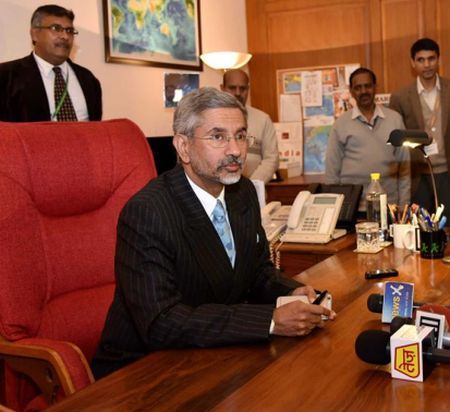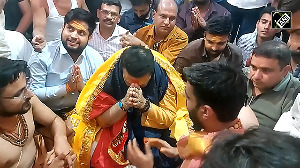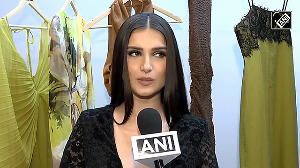'Given his stint in Beijing, as India's longest serving ambassador there and that too through some challenging and interesting times, Jaishankar ought to have been appointed as foreign secretary in 2013 itself,' says Dr Sanjaya Baru.

While bureaucratic purists may raise eyebrows at the sudden dismissal of a foreign secretary and the appointment of another, Prime Minister Narendra Modi's decision not to allow Subrahmanyam Jaishankar, the 1977-batch Indian Foreign Service officer to go into retirement and instead induct him as the new foreign secretary sets a healthy precedent in governmental appointments.
While Dr Manmohan Singh also ignored the principle of seniority in his first term as prime minister and opted to draft both his first and second foreign secretaries, Shyam Saran and Shivshankar Menon, on the basis of their experience and merit rather than seniority, in his second term he plumped for seniority, appointing Nirupama Rao, Ranjan Mathai and Sujatha Singh principally on this consideration.
Indeed, given his stint in Beijing, as India's longest serving ambassador there and that too through some challenging and interesting times, Jaishankar ought to have been appointed as foreign secretary in 2013 itself.
Better late than never, Mr Modi has taken an important administrative decision that can help revive morale in the foreign office. I say this advisedly.
Several joint secretary level IFS officers approached me in 2013 and urged me to go meet Dr Singh and advise him to appoint Jaishankar as foreign secretary. Their argument was simple -- if seniority is raised to the status of an iron rule, what incentive would we younger officers have to perform?
As one bright spark in the external affairs ministry put it to me, "If only the seniority principle is followed I can tell you right now who will be the foreign secretary for the next two decades. I know I will not make it, so why should I work hard and prove my worth?"
Jaishankar is, without doubt, a highly talented diplomat. Before becoming one he was a brilliant student. My personal association with him dates back to our time at the Jawaharlal Nehru University where, in 1975, we were active office-bearers of the JNU Debating Society.
After a brilliant first in his master's, he secured his doctoral degree writing a thesis on India's nuclear policy.
In the foreign service he attracted the attention of his superiors early in his career and occupied key positions in the external affairs ministry, in Indian embassies in Moscow, Washington, DC and Sri Lanka and was a trusted aide to Indira Gandhi's key advisor - the late and legendary G Parthasarathy.
During P V Narasimha Rao's tenure as prime minister, Jaishankar was President Shankar Dayal Sharma's press secretary and played a delicate role trying to bridge the divide between the PM and the President. Dr Sharma, it may be recalled, gave PV a tough time and PV was not one to take things lying down!
As an editor at The Economic Times and The Times of India at the time, I dealt with Jaishankar as a media person and learnt many lessons that stood me in good stead when I had to perform a similar role in the Prime Minister's Office.
The nuclear deal gave us the opportunity to work closely together from the very beginning to the very end and I benefited greatly from his advice in devising the media strategy for shaping public opinion at home and abroad.
While it was in Moscow, Sri Lanka, Singapore, Tokyo and Beijing that Jaishankar proved his mettle, his professional high point till last year will remain his role as Manmohan Singh's most trusted negotiator on the US-India civil nuclear agreement.
Dr Singh trusted Jaishankar more than anyone else and took the unusual decision to draft him into the negotiations even after posting him in Singapore as India's high commissioner.
It is a mark of Jaishankar's professionalism that Prime Minister Modi too has also come to trust him and has recognised and rewarded his diplomatic skill and intellectual capabilities.
Also read: Modi humbles two women with one sling
Dr Sanjaya Baru served as media advisor to Prime Minister Manmohan Singh during his first term in office.
Image: Dr S Jaishankar interacts with the media after assuming charge as Foreign Secretary of India. Photograph: MEA/Facebook.











 © 2025
© 2025